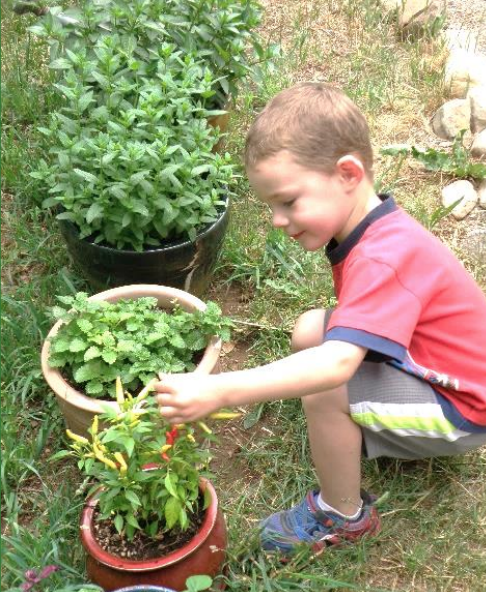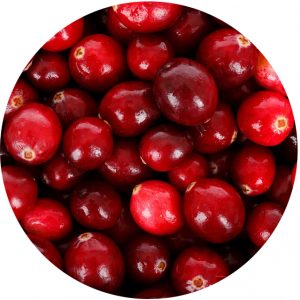 Ethnobotany is the scientific study of the relationships that exist between people and plants. Students share recipes of their favorite foods and research the origins and historical uses of important plant ingredients. Written for grades 3-6; adaptable for other ages. View Resource »
Ethnobotany is the scientific study of the relationships that exist between people and plants. Students share recipes of their favorite foods and research the origins and historical uses of important plant ingredients. Written for grades 3-6; adaptable for other ages. View Resource »
Journey to the Center of a Seed
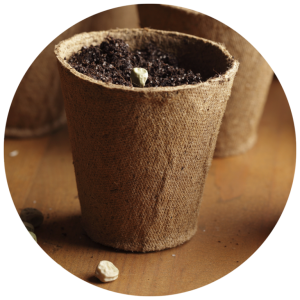 A seed is more than meets the eye. In this curriculum for grades K-4, students observe, sort, and classify a variety of seeds according to different properties, and then take a journey inside a bean seed to predict and observe changes that occur during seed germination. View Resource »
A seed is more than meets the eye. In this curriculum for grades K-4, students observe, sort, and classify a variety of seeds according to different properties, and then take a journey inside a bean seed to predict and observe changes that occur during seed germination. View Resource »
Container Herb Garden for Young Children
You don’t need space for a garden to give children access to garden-based education! Consider planting a container herb garden. This resources cover all the basics of starting an herb container garden with young children, including materials needed and estimated costs as well as tips for involving young children in the garden. Related activities for each age group (infants/toddlers, 2-year olds, and 3 to 5 year olds and school age) are included along with connections to the Wisconsin Model Early Learning Standards. View Resource »
Eating from the Garden
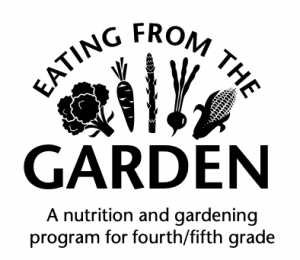 Eating From the Garden is a nutrition and gardening curriculum for fourth- and fifth-grade students. This curriculum provides research-based information through nutrition and gardening activities to increase consumption of fruits and vegetables, and promote healthier food choices, gardening knowledge, and physical activity. View Resource »
Eating From the Garden is a nutrition and gardening curriculum for fourth- and fifth-grade students. This curriculum provides research-based information through nutrition and gardening activities to increase consumption of fruits and vegetables, and promote healthier food choices, gardening knowledge, and physical activity. View Resource »
Growing Healthy Kids
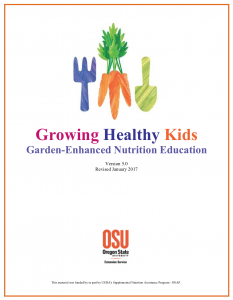 Growing Healthy Kids (GHK) is a garden-themed, nutrition education curriculum best aligned to Common Core Standards for students in 2nd and 3rd grades. GHK was developed at Oregon State University for use in the Supplemental Nutrition Assistance Program Education (SNAP-Ed) program of Oregon. GHK includes seven (7) lessons with options for an outdoor, indoor, or hybrid (combination of activities from both mural and indoor gardens) garden, to give students opportunities to learn basic plant parts and try a variety of fruits and vegetables. Along with core journaling and gardening activities, lessons include food tasting activities, recipe print-outs, physical activity options, coloring sheets, and suggestions for supplemental storybooks to go with lesson themes. The GHK curriculum may be used free of charge, as long as Oregon State University Extension Service is credited appropriately: the Oregon State University Extension Service logo and a statement crediting Oregon State University Extension Service must appear on all handouts and other GHK materials. View Resource »
Growing Healthy Kids (GHK) is a garden-themed, nutrition education curriculum best aligned to Common Core Standards for students in 2nd and 3rd grades. GHK was developed at Oregon State University for use in the Supplemental Nutrition Assistance Program Education (SNAP-Ed) program of Oregon. GHK includes seven (7) lessons with options for an outdoor, indoor, or hybrid (combination of activities from both mural and indoor gardens) garden, to give students opportunities to learn basic plant parts and try a variety of fruits and vegetables. Along with core journaling and gardening activities, lessons include food tasting activities, recipe print-outs, physical activity options, coloring sheets, and suggestions for supplemental storybooks to go with lesson themes. The GHK curriculum may be used free of charge, as long as Oregon State University Extension Service is credited appropriately: the Oregon State University Extension Service logo and a statement crediting Oregon State University Extension Service must appear on all handouts and other GHK materials. View Resource »
